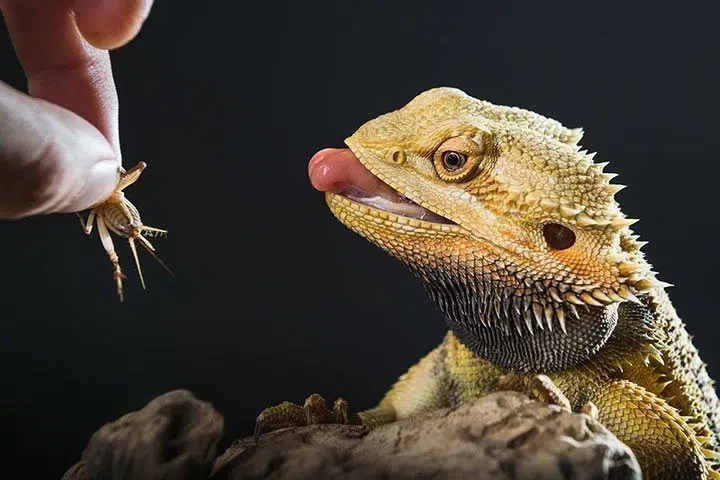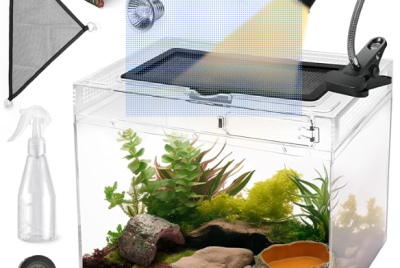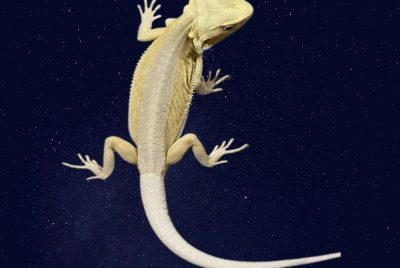Bearded Dragon Diet: The Ultimate Guide
As a bearded dragon enthusiast, one of the most important aspects of care is feeding your dragon the right diet. A healthy diet isn’t just about what you feed them—it’s about how often, how much, and making sure they get all the nutrients they need. In this guide, we’ll cover everything you need to know about what to feed your bearded dragon to keep them healthy and happy.
Introduction: Why Bearded Dragon Diet Matters
Bearded dragons are omnivores, which means they eat both plant matter and animal protein. However, it’s not as simple as feeding them a mix of random veggies and bugs. Each life stage has different dietary requirements, and if you’re not careful, an improper diet can lead to serious health issues like metabolic bone disease or impaction. Understanding their dietary needs is key to giving them the best care possible.
The Natural Diet of Bearded Dragons
Before diving into specific foods, it’s important to understand what bearded dragons naturally eat in the wild. By mimicking their wild diet, you’ll ensure your dragon is getting the most balanced and healthy nutrition.
What Do Bearded Dragons Eat in the Wild?
In their natural habitat, bearded dragons feast on a variety of insects, small animals, and plants. They are opportunistic eaters, meaning they’ll consume what’s available to them based on the season. This includes a mix of insects, leafy greens, flowers, and even small rodents or lizards.
Understanding Their Omnivorous Nature
Since bearded dragons are omnivores, they need both animal-based protein and plant matter in their diet. However, the ratio of insects to vegetables will change depending on their age. Juveniles require more protein to support their rapid growth, while adults should have a diet heavier in vegetables.
The Best Foods for Bearded Dragons
Now that we understand their natural diet, let’s look at the best foods to feed your bearded dragon in captivity. These foods will ensure your dragon gets the right mix of protein, vitamins, and minerals.
Insects: Protein-Packed Staples
Insects are a major source of protein for bearded dragons, especially for younger dragons that need the protein to grow.
Safe Insects for Your Bearded Dragon
Some of the best insects to feed your bearded dragon include crickets, dubia roaches, black soldier fly larvae, and silkworms. These insects are not only safe but also high in protein and easy to digest. Always source your insects from a reputable supplier to ensure they are pesticide-free.
How Often Should You Feed Insects?
For juvenile bearded dragons, feeding insects once or twice a day is necessary to meet their protein needs. As your dragon grows, reduce the frequency. Adult dragons typically only need insects a few times per week, as their diet should focus more on vegetables.
Vegetables: Essential for Nutrients
Vegetables are a crucial part of a bearded dragon’s diet, providing vitamins, minerals, and fiber to promote good digestion and overall health.
The Best Vegetables for Bearded Dragons
Leafy greens like collard greens, mustard greens, and dandelion greens are some of the best vegetables for bearded dragons. You can also offer squash, bell peppers, and carrots in moderation. Rotate the veggies you provide to ensure a well-rounded diet.
How to Properly Prepare Vegetables
Always wash vegetables thoroughly and cut them into small, bite-sized pieces to make them easier for your dragon to eat. Make sure the vegetables are raw—cooked vegetables lose many of the nutrients that your dragon needs.
Fruits: Occasional Treats
While fruits can be a nice treat for your dragon, they should make up only a small part of their overall diet due to their high sugar content.
Safe Fruits and Serving Tips
You can offer fruits like blueberries, strawberries, and mangoes, but only in moderation. Slice fruits into small, manageable pieces and remove any seeds or pits. Be sure to limit fruits to once or twice a week to prevent digestive issues.
What Foods to Avoid Feeding Your Bearded Dragon
Not all foods are safe for bearded dragons. Some can be toxic, while others may cause digestive problems or even lead to impaction.
Toxic or Harmful Foods
Avoid feeding your bearded dragon avocado, rhubarb, and fireflies, as they are toxic and can cause serious health problems or death. Citrus fruits should also be avoided due to their acidity, which can upset your dragon’s stomach.
Foods That May Cause Impaction
Loose substrates like sand or small gravel can cause impaction if ingested. Additionally, feeding hard-shelled insects like mealworms to young or small dragons can lead to impaction as well. Always supervise feedings and ensure your dragon is eating in a clean area.
Hydration: Importance of Water in the Diet
Hydration is often overlooked but crucial to keeping your bearded dragon healthy.
How Bearded Dragons Stay Hydrated
In the wild, bearded dragons get most of their hydration from the food they eat and occasional rain or dew. In captivity, it’s important to provide a constant source of fresh, clean water.
Tips for Providing Water Effectively
Place a shallow water dish in the enclosure and refresh it daily. You can also lightly mist vegetables or your dragon itself to help with hydration. Just be sure the humidity levels in the tank don’t get too high, as excessive moisture can lead to respiratory issues.
Feeding Schedule and Portions for Different Life Stages
The feeding needs of bearded dragons change as they grow, so it’s important to adjust the diet and feeding schedule accordingly.
Hatchlings and Juveniles
Hatchlings and juveniles (up to 12 months old) require frequent feeding—about 80% of their diet should consist of protein-rich insects. Feed them 2-3 times a day with plenty of greens on the side.
Adult Bearded Dragons
Once your bearded dragon reaches adulthood (12-18 months), their diet should shift to about 80% vegetables and 20% protein. Feed adults insects only 2-3 times a week, and provide fresh veggies daily.
Seniors and Special Needs
As your dragon ages, their activity level may decrease, and so should their protein intake. Senior dragons benefit from softer vegetables and more frequent hydration. If your dragon has special dietary needs, consult a vet for personalized advice.
How to Ensure a Balanced Diet
A balanced diet is key to preventing health problems like obesity or malnutrition.
Ratio of Insects to Vegetables for Various Ages
The ideal ratio for juvenile dragons is around 80% insects to 20% vegetables. For adults, this ratio flips, with 80% vegetables and 20% insects. This ensures they get the right balance of protein and fiber throughout their life.
Importance of Calcium and Supplements
Calcium is critical for bearded dragons, as it supports bone health and prevents metabolic bone disease. Dust your dragon’s food with a calcium supplement 3-4 times a week and provide a multivitamin once a week to ensure they’re getting all the nutrients they need.
Common Feeding Mistakes and How to Avoid Them
Even experienced bearded dragon owners can make feeding mistakes. Let’s look at some common errors and how to avoid them.
Overfeeding Insects
It’s easy to overfeed insects, especially to juveniles who seem always hungry. However, feeding too many insects can lead to obesity and other health problems in adults. Stick to recommended feeding schedules based on age.
Not Offering a Variety of Foods
Bearded dragons, just like humans, benefit from a varied diet. Relying too heavily on one type of food (whether insects or greens) can lead to nutritional deficiencies. Make sure you’re offering a mix of safe vegetables, fruits, and insects to keep them healthy and happy. Not only does variety support their nutritional needs, but it also helps keep them engaged and interested in mealtime.
Conclusion
Feeding your bearded dragon the right diet is crucial for their health, well-being, and happiness. From understanding their omnivorous nature to knowing what foods to avoid, the key is providing a balanced mix of insects, vegetables, and the occasional fruit. Remember to adjust their feeding schedule as they grow, ensure they stay hydrated, and always keep an eye on their behavior to make sure they’re thriving. With the right care, your bearded dragon will live a long, healthy, and happy life.
FAQs
- How often should I feed my bearded dragon vegetables? Adult bearded dragons should have fresh vegetables daily, while juveniles should also have veggies alongside their protein-rich insect meals.
- Can I feed my bearded dragon mealworms? While mealworms are a popular feeder insect, their hard outer shell can cause impaction, especially in young dragons. It’s best to use them as an occasional treat for adult dragons.
- What should I do if my bearded dragon won’t eat vegetables? If your bearded dragon refuses to eat vegetables, try offering a variety of different types or lightly misting them with water. You can also try mixing vegetables with insects to encourage them to eat their greens.
- How important are calcium supplements for my bearded dragon? Calcium is essential for preventing metabolic bone disease. Bearded dragons should have their food dusted with calcium powder regularly, especially if they aren’t getting enough from their diet.
- How can I tell if I’m overfeeding my bearded dragon? Signs of overfeeding include rapid weight gain, lethargy, and a distended belly. Stick to feeding schedules based on your dragon’s age and size to avoid overfeeding.




